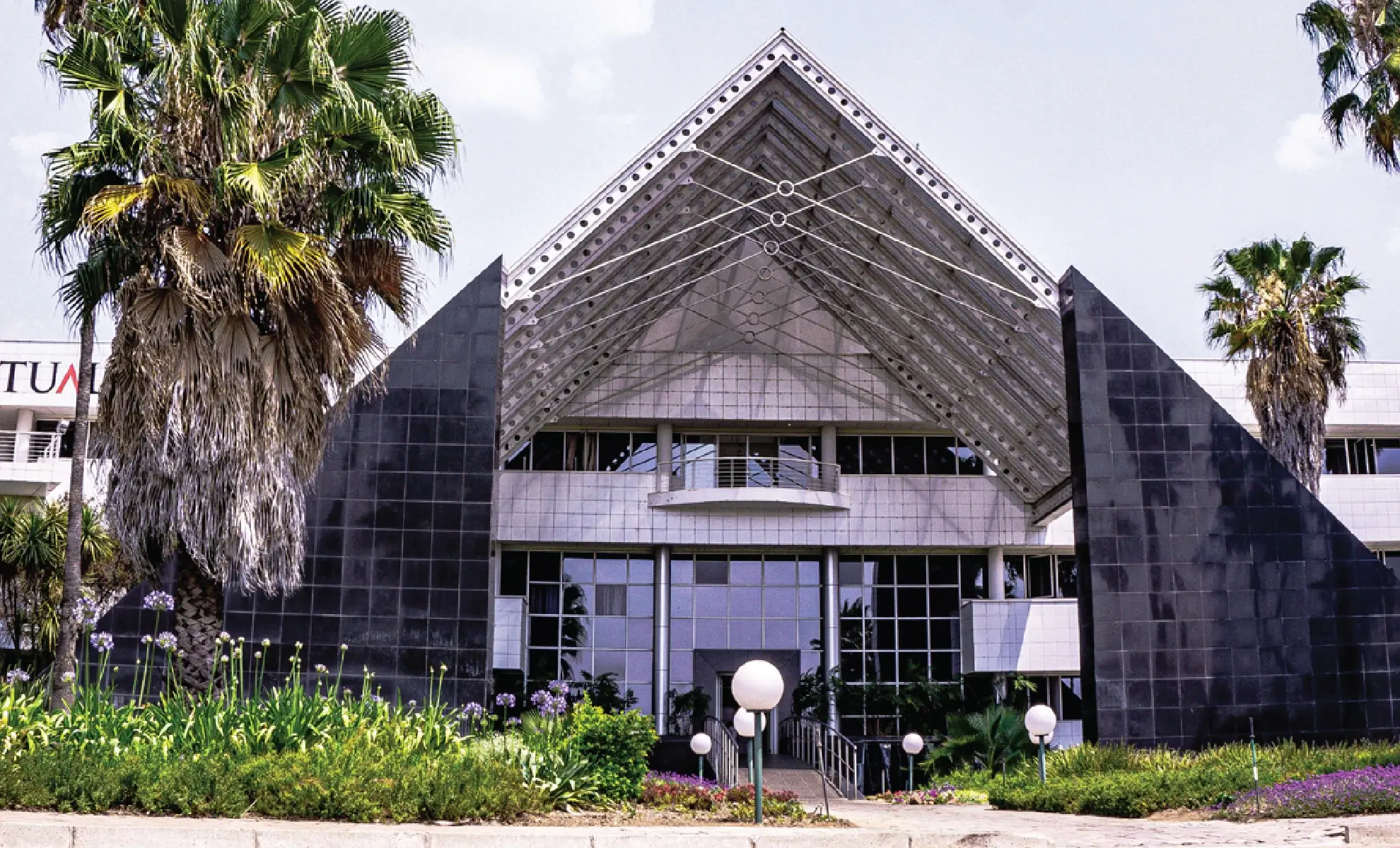Your cart is currently empty!

ZIMBABWE’S largest association of Project Managers, PMZ (Project Management Zimbabwe) is this year celebrating 10 years of project management service. Established from humble beginnings in Bulawayo in 2009, to date PMZ boasts of a database of over 4,000 Associate and Professional members. PMZ is the second largest Project Management Association in Southern African after Project Management South Africa (PMSA). The history of PMZ can be traced back to October 2009 when a group of over 50 students and facilitators, who were passionate about project management, convened at the Bulawayo Polytechnic on 9th October 2009 and endorsed the charter that led to the formation of PMZ.
All the founder members at that time were men and women who had full time jobs elsewhere but frequently met during weekends without a physical office to mentor each other in project management issues. “2009 is the same year that Zimbabwe dollarized the economy and there was an optimistic economic boom steered by an All Inclusive Government that had been established”, said one of the Founder Members Mr Darlington Dube.
“Many national development projects were launched by Government and the demand for project managers was intense at that time. We had always seen large scale projects for major infrastructure development, such as the construction of roads, power projects and water and sanitation being awarded by Government to expatriate companies from South Africa, China and other countries. We were keen to prove to Government that we had good project managers locally and PMZ wanted to lobby for that stance among several establishment objectives.
PMZ is now registered and fully accredited by the Ministry of Higher and Tertiary Education, Science and Technology as an Independent Exam Board, and a Vocational and Training Institution. Corporate Governance Legacy The October 2009 inaugural founders’ meeting unanimously agreed to register the Association as a Trust and a draft constitution was crafted. However full registration was only achieved mid-2010 under the leadership of the first Chairman Mr Felix Gwandekwande. The original name of Project Management Institute of Zimbabwe (PMIZ) was used before the 2013 change and re-branding to PMZ on the advice of international stakeholders.
The first nine member board meeting was held in Kwekwe in 2010 under the leadership of Mr Gwandekwande and each board member contributed personal resources for the travel and hospitality costs given that the Institute had no funding at that time. Founder members Mr Kennedy Mangadze and Mrs Rose Nhamo negotiated for PMZ to secure temporary offices in January 2011 at No. 17 Peterborough Ave. Eastlea in Harare. This was to become the physical address of the National Secretariat Office of the Institute for the next five years before the relocation to 8 Buckingham Rd. Eastlea in 2016. The Bulawayo Regional PMZ Office was set up in 2013 at Enterprise Building on the corner of 12TH and J-Tongogara Street, Bulawayo. As the institute marks 10 years of existence, PMZ has seen the enactment of three boards to date since 2009.
The Felix Gwandekwande executive was the first (2009-2013) before they passed the baton to the team led by Thandi Chibanda (2014-17) before the current team led by Dr Themba Nyoni arrived. Membership Services of PMZ PMZ Membership Services are managed from two regions i.e. Bulawayo and Harare, as dual Chapters. The constitution allows each chapter to have its own elected executive whose tenure runs for two years with monthly and quarterly chapter meetings hosted in both regions. “Chapter events and activities are the lifeblood of the institute to drive our voice in lobbying and advocacy issues about project management. Zimbabwe is currently marching towards Vision 2030 driven by our Government, and only projects and project management can help to navigate us to that strategic level, “said Mr Douglas Mapuranga, the current Chairperson of the PMZ Harare Chapter. The Bulawayo Chapter boasts of administration of the oldest PMZ database. The Chapter takes care of members not only in Bulawayo, but also in Hwange, Victoria Falls, Masvingo, Midlands and Beitbrigde regions.
On the national front PMZ has successfully hosted two annual events every year since 2013, i.e. The Annual Project Managers’ Dinner and the International Project Management Day conference. Harare and Bulawayo have alternated hosting responsibilities for these two major events from year to year. Government Ministers who have hosted previous events in recent years include Minister Professor Amon Murwira, (2018 PMZ Annual Dinner) and ex- Minister Obert Mpofu (2014 IPM Day Breakfast Meeting) among others.
PMZ has three major categories of membership with distinct benefits, Associate Membership, Professional Membership and Corporate Membership. PMZ Training Services The PMZ Certificates and the Diplomas in Project Management (CPM, DPM and PGDPM) are the most popular and best known project management courses in Zimbabwe. Training has been running countrywide since 2012 via accredited tuition centres such as Trust Academy, Speciss College and Midlands Business School. An average of 200 CPM, DPM and PGDPM graduates roll out annually from the national training centres to enter the job market armed with appropriate project management skills. “Our CPM and DPM curriculum is flexible and robust for any candidate’s employment or entrepreneurship competency needs because we align the courses to the PMBOK Guide latest editions (Project Management Body of Knowledge),” said Mr Taruwona Robert, the Founder President of PMZ.
The same sentiments were echoed by PMP (Project Management Professional) and Board member Mr Mlambo Pfungwa who reiterated that no Project Manager can go wrong in managing any large or small project if they follow the tools and techniques of the PMBOK. Besides CPM and DPM courses, PMZ is known as the centre for project management training for short term courses such as COCPM (Certificate of Competency in Project Management), PMP and PRINCE2 certificatory preparations, as well as Microsoft Project and Risk Management. Large and small corporates such as Zinara, Dairiboard, ZIMRA, First Mutual Holdings, Anglo American Unki Mine, Mimosa Mine, TRB, and recently UNDP Harare, have benefitted from PMZ mentorship in these disciplines over the last seven years. “Our five year strategic plans are now clear on the implementation front because we have included project management as the main vehicle of choice to drive the plans, thanks to the mentorship of PMZ in this regard.
Over 100 members of staff here at FMH are now competent Project Managers”, said First Mutual Life Managing Director Ruth Ncube recently. In 2015 the Government of Botswana sponsored a group of Seven Heads of Key Departments in their Ministry of Education portfolio to pursue the PMZ Certificate in Project Management course (CPM) on a full time basis for six months in Harare. All the delegates managed to complete the programme before returning. Next 10 years ahead: The main purpose of project management is to maximize, in the most effective and efficient way, the value created by a project. Central to such management is the attainment of both cooperation and coordination regimes that often transcend organisational boundaries.
For these reasons, current theory on organising and managing projects emphasizes the importance of understanding how such regimes can be established and maintained. As the story about the 10 year legacy of PMZ unfolds, stakeholders are keen to know what the next 10 year cycle will reveal as well as the details of the strategy ahead. Projects such as the long overdue Master of Science (MSc) in Project Management training programme are expected to clearly manifest for stakeholders to benefit by 2020. The major event to recognize and mark the 10 year PMZ anniversary will be the different treatment approaches to HIV being implemented mainly by the CSOs and yet funding for civil society groups have dwindled. The changing institutional landscape highlights the urgent need for civil society to review and redefine its role and reposition themselves to International Project Management Day (IPM Day) Conference and Exhibition to be hosted in Harare on 7 November 2019. Dr Themba Nyoni is the current Chairperson of the PMZ Board (2019-2022) and will be hosting the 2019 IPM Day event. Dr Lunga Msengama from Project Management South Africa is expected to speak at the same event this year as one of the major international guests alongside the Guest of Honour, Minister of Energy and Power Development Advocate Fortune Chasi or his representative. Various categories of awards to reward those stakeholders that have contributed to the growth of the project management profession are lined up at the same eventcontribute to the response to HIV and health generally, considering the linkages between HIV and other health issues. It is important that civil society groups adapt to the changing landscape to remain relevant, considering that they are key player in the fight to ending the AIDS epidemic.
The question that arises is, “How can CSOs in HIV work adapt to respond appropriately to the changing landscape and the clarion call for access to health?” As Government provides most of the services, including prevention and treatment to PLHIVs, civil society groups can focus on support adherence to treatment, support marginalised and key populations to enable access to both prevention and treatment, including providing watchdog roles in the communities. For CSOs to be able to conduct such activities, there is need to strengthen their individual skills and organisational systems. Is it against this background that UNDP has rolled out this CSOs training programme targeting participants from across the country.
One of the COCPM delegates Mr Kasirai Hweta from Loving Hand Bulawayo, said the course was relevant as it is going to improve the deliverables in their projects. “As we are going to start new projects we are going to start on a firm foundation as we now know the things that are supposed to be done before a project starts and during the implementation hence an improvement in the outcome. Sometimes we do things haphazardly due to poor planning, but with the skills that I have acquired at this course I am going to improve on the ongoing projects that we are running now”, said Mr Hweta. Phillipa Mhike from the Sexual Rights Centre in Gweru said the training was very insightful as it focused on aspects which, if applied ly can yield positive results.
Mhike confirmed that the training touched on other important aspects which in most cases project managers take for granted. “One of the key areas that the training focused on was the Work Breakdown Structure (WBS) which most of us take for granted. In most cases we don’t really consider the sharing of duties yet it’s important for a project to be a success,” she said. In another comment, Jabulani Tshabalala from Umguza in Matabeleland North, said that the programme was really exciting and applauded the facilitators from the Project Management Zimbabwe (PMZ) for coming with this type of model for training. “I hope for such trainings to be scaled up so that all the CSOs in Zimbabwe funded by various partners can have this kind of approach which can actually satisfy the needs of stakeholders.
“Our facilitators were very motivating, knowledgeable and very patient with us, with very good time management skills. They managed to compress the long course into a few days which is a very skilful approach. Tonderai Chikono from Development Aid from People to People in Zimbabwe (DAPP), who was also the group representative, echoed the same sentiments saying though the programme was very educational and informative there is a need to extend the duration of the courses for participants to completely grasp the main aspects. Mr Chikono also said that in terms of participation it was well attended and the participants were eager to learn. “The participation was a two way process as both the facilitators and participants created room for interaction,” he said.
